|
Music Is The Healing Force Of The Universe The Inconsistency of |
|
|
|
“One day, everything will be, as it should be.” home |
|
May 1 2025
Belated Easter Greetings From Dirk Goedeking: |
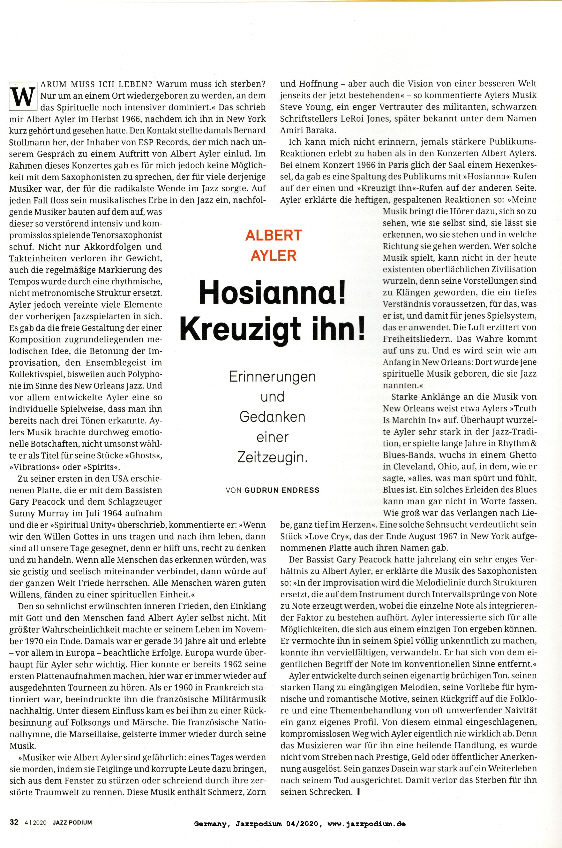 |
|||||||||||||||
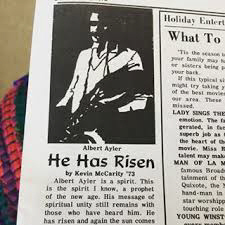 |
|||||||||||||||
|
‘"Hosanna Crucify him" by Gudrun Endes was published in the German Jazzecho in 04/2020. "He has risen" by Kevin McCarity was published in 1973.’ And I don’t think this is going to work. * Musée Albert Ayler Dirk paid another visit to the virtual ‘Musée Albert Ayler’ in Lyons, which we last mentioned almost 5 years ago. Here are a few more posters: |
|||||||||||||||
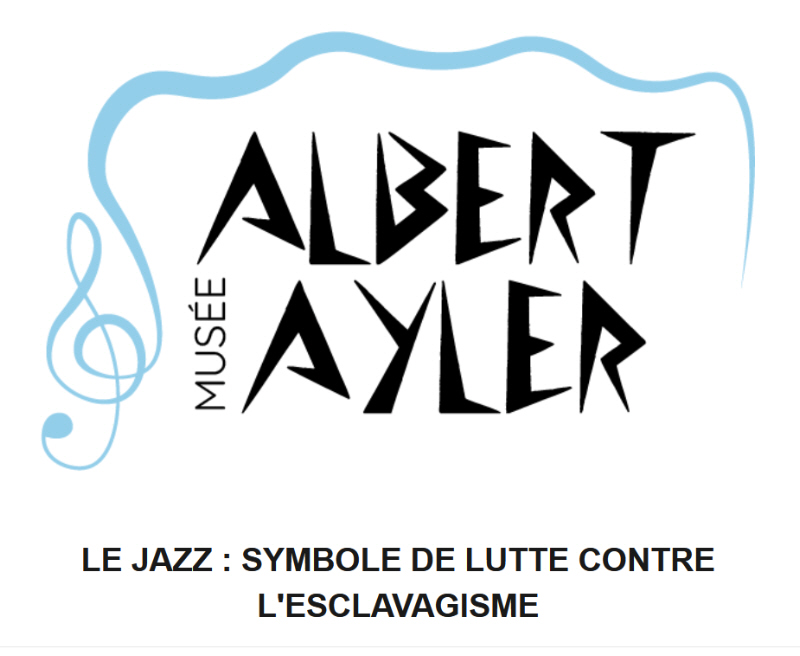 |
|||||||||||||||
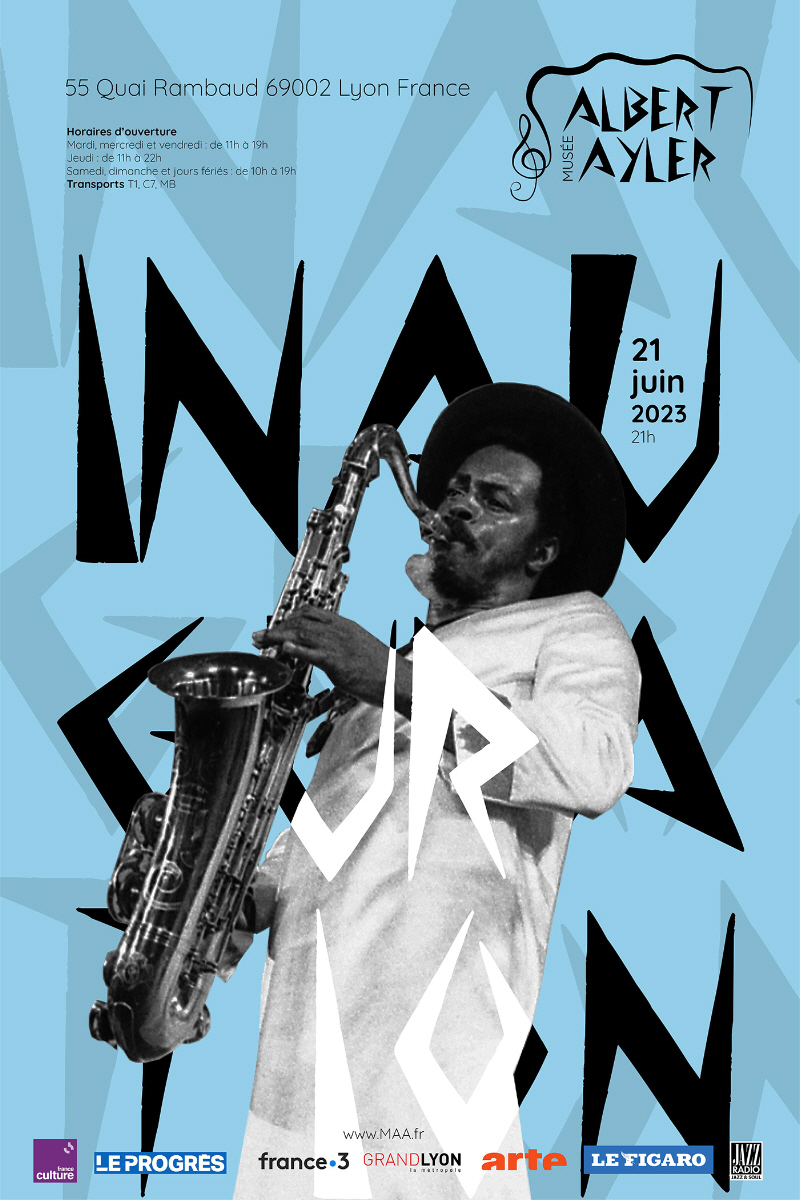 |
|||||||||||||||
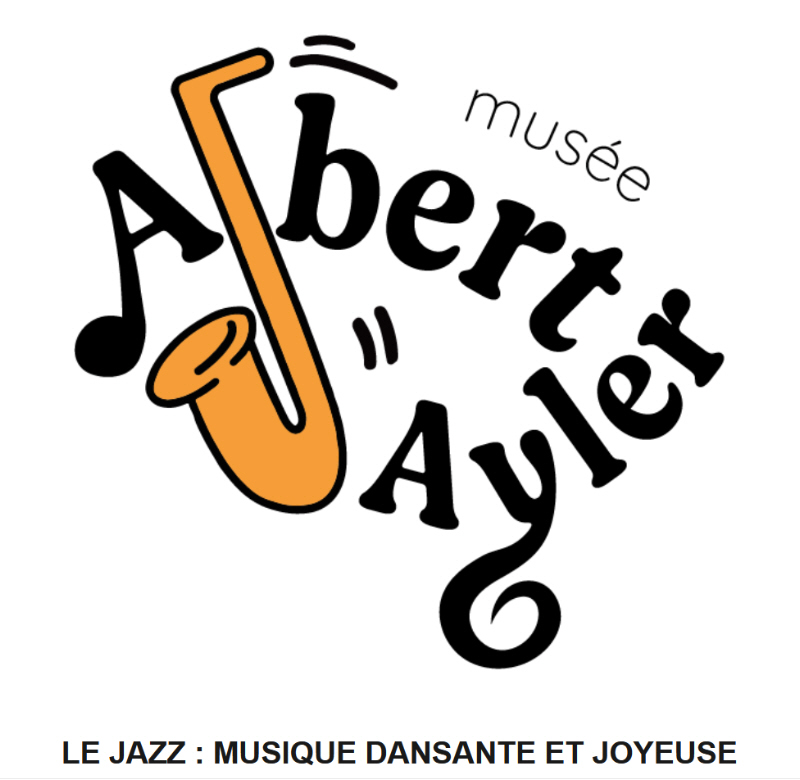 |
|||||||||||||||
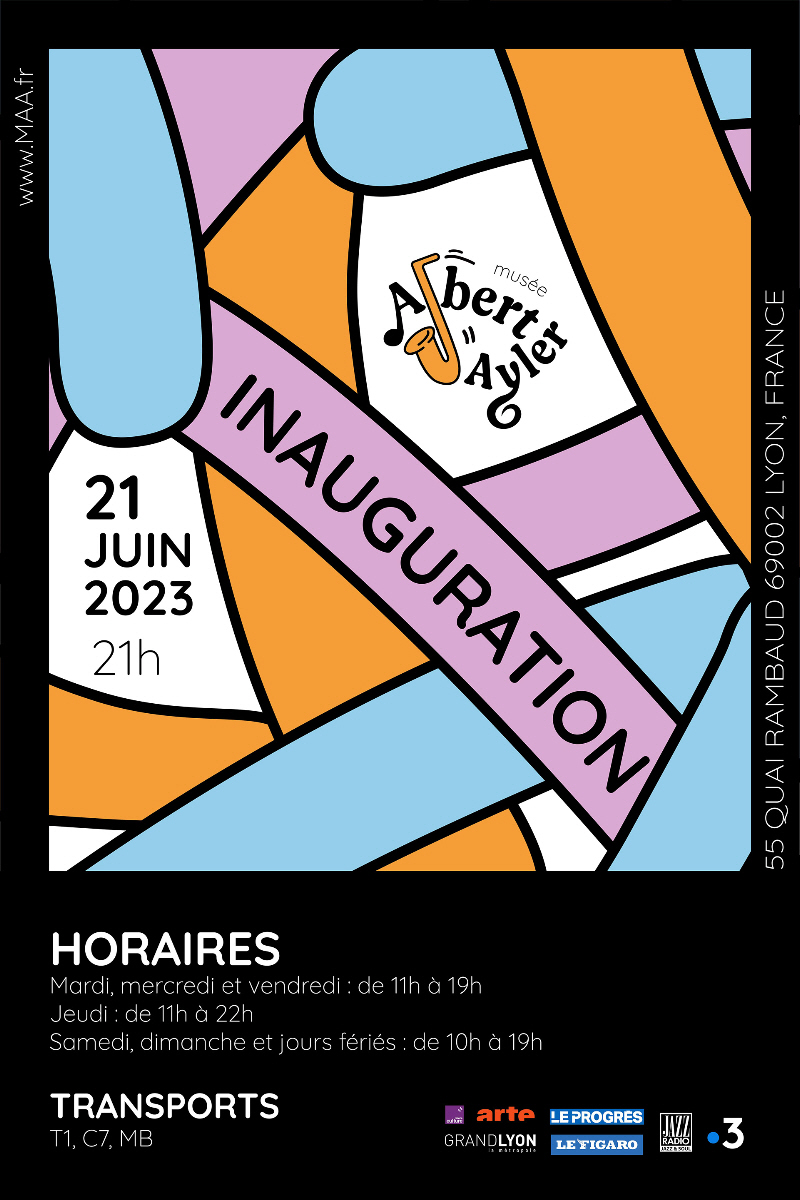 |
|||||||||||||||
|
Staying in France, Dirk also unearthed a podcast on Radio France from 2015, entitled ‘Albert Ayler, du free jazz au Black Power’. * Paul Dunmall And he also spotted this: The Paul Dunmall Sextet performs ‘Jazz Dance’ (Eddie Harris) and ‘Ghosts’ (Albert Ayler) at London’s Vortex Jazz Club on Friday 2nd May. LINE-UP: Paul Dunmall - Saxophones, Nikki Yeoh - Piano, Percy Pursglove - Trumpet, Richard Foote - Trombone, James Owston - Double Bass, Miles Levin - Drums. ABOUT A lauded master on the European Jazz scene, Paul Dunmall celebrates his 72nd birthday with this specially invited Sextet. Multi generational and drawing from a wide variety of inspirations this particular ensemble is well suited to Dunmall’s program for this concert. Pianist Nikki Yeoh has collaborated in her own group and with Dunmall in different combinations in recent years and the concerts have been received with deserved ovations. Percy Pursglove and Richard Foote (trumpet and trombone respectively) are the perfect partners on these sonic trips and the bass/drum combination of James Owston and Miles Levin are integral to a number of Duns latest ensembles. |
|||||||||||||||
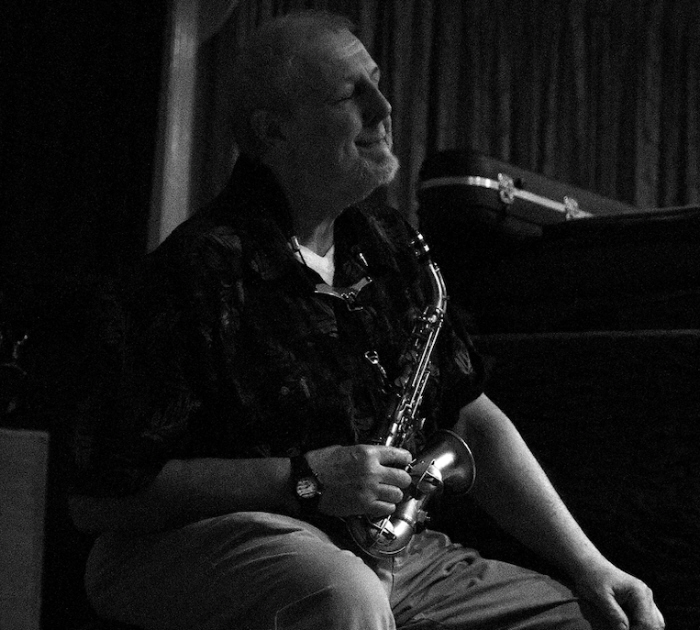 |
|||||||||||||||
Germán Boco TríoThought I’d mention this since I’m not adding that much this month (“In Spring a woman’s fancy turns to telling her husband to do some decorating”, so I’ve been tottering on stepladders and investigating what’s been living behind the cooker for the last ten years) and I didn’t want it to get lost in the Tributes pages. Germán Boco is an Argentinian percussionist and his album, Humo (‘Smoke’), turned up on youtube. As well as Monk’s ‘Bemsha Swing’ and Coleman’s ‘Lonely Woman’, it also contains a track entitled ‘Homenaje A Albert Ayler’. |
|||||||||||||||
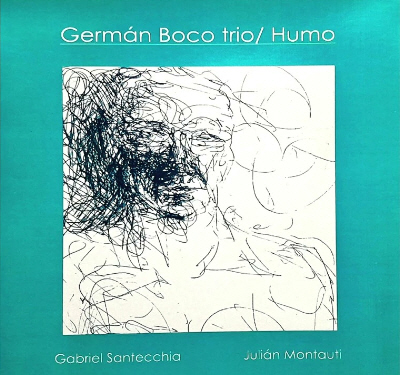 |
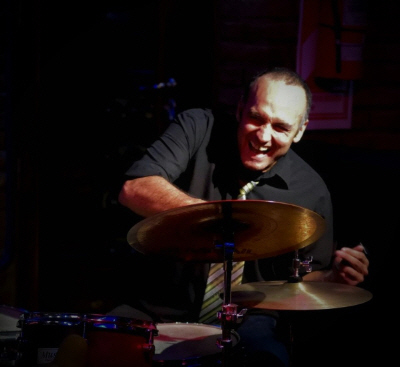 |
||||||||||||||
|
Non-Ayler Follow-ups Again from Dirk: Sun Ra ‘Sun Ra's complete Maeght recordings were released on Wednesday, 16th April. They are available on bandcamp, Spotify,... . So after "Revelations", Cecil Taylor, the third in a row, is still waiting for a complete release.’ Jimmy Giuffre Following on from last month’s Giuffre film, Dirk mentioned another record by the Giuffre/Friedman/Phillips Trio, Olympia - Feb 23rd, 1960 Feb 27th, 1965, and pointed me in the direction of a fine Giuffre discography, and another album, this one of a Berlin Concert by the Giuffre/Bley/Swallow Trio from 18th November, 1961, which is available on youtube. * And finally ...
|
|||||||||||||||
|
April 1 2025
Housekeeping A couple of things which I’ve mentioned before but the links have died. First, Cecil Taylor in Europe in 1969. Dirk Goedeking alerted me to a video of the Cecil Taylor Unit (Taylor, Sam Rivers, Jimmy Lyons and Andrew Cyrille) in Paris, 1969, which I duly posted, mainly because I’d seen that group at the Hammersmith Odeon, that year. Dave Taylor then sent me a link to the group in Copenhagen (which, with my dodgy memory) I presumed was the same one I’d already mentioned. Dave also said that he’d seen the same concert I had in London. Checking it out, the link to the Paris clip had broken, and so I decided to repost it (still thinking there was only one clip). However, now I check it, I realise there are two clips, Paris and Copenhagen. So here’s Copenhagen:
|
|||||||||||||||
|
And, this is the full concert from Paris, both sets:
|
|||||||||||||||
|
Which, of course, has very little to do with Albert Ayler.; And now we move on to ... The Beatles. Dirk sent me the following, which I repeat verbatim: ‘The ultimate 60’s music question didn’t concern free jazz, it was simply: “Beatles or Stones?”. I for myself prefer The Beatles, although I didn’t know about “Paul McCartney and Albert Ayler”. Here’s what I found, maybe you know already: ‘So how does Paul McCartney fit into this? McCartney was into experimental music and in the mid-1960s, produced a film showing a French gendarme directing traffic using Ayler’s “La Marseillaise” as the soundtrack. He had several of Ayler’s albums, and when The Beatles were recording their “Revolver” album, McCartney was sometimes at odds with producer George Martin about the band’s musical innovations. To annoy Martin, McCartney would play Ayler’s album “Spiritual Unity” while they were dining.’
“At the same time, he also began to think that the classically trained George Martin was old-fashioned because he did not see the avant-garde musicians on the same level as his role models such as Brahms or Mozart. This went so far that Paul played George Martin a complete album by the experimental saxophonist Albert Ayler at a dinner and - when Martin was not convinced by the quality of the recording - started a full blown argument with him.” (translated German) [From ‘Making of: Sgt. Pepper’s Lonely Hearts Club Band’ by M. Steinwachs.]
“And I was looking out of the hotel window in one French city and there was a gendarme on traffic duty. There was lot of traffic coming this way, then he’d stop ’em, and let them all go. So the action for ten minutes was a gendarme directing the traffic: lots of gestures and getting annoyed. He was a great character, this guy. I ran it all back and filmed all the cars again, it had been raining so there was quite low light in the street. So in the film he was stopping cars but they were just going through his body like ghosts. It was quite funny. Later, as the soundtrack I had Albert Ayler playing the ‘Marseillaise’. It was a great little movie but I don’t know what happened to it.” [Paul McCartney – From “Paul McCartney: Many Years from Now” by Barry Miles, 1997.]
As the film seems to be lost, I include a photo of gendarme George taken by Paul.’ |
|||||||||||||||
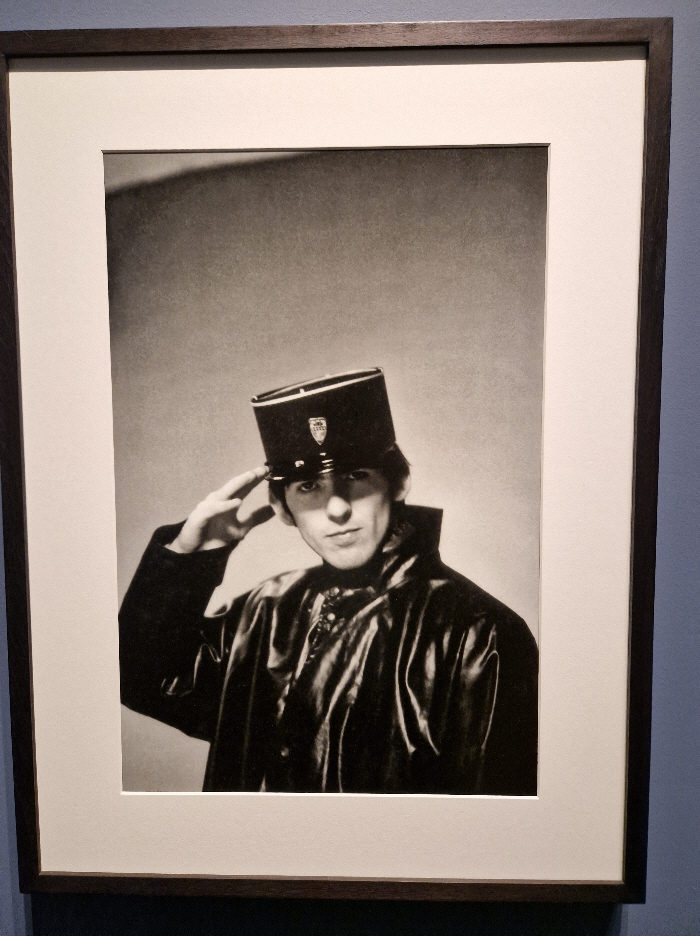 |
|||||||||||||||
|
So ... First off I found another mention of Ayler in Barry Miles’ book: ‘He was just there at Robert’s [Fraser] one evening. And Keith Richards and myself just happened to be there, and I’d brought some little home movies of mine. I used to have a projector that would flick pictures very slowly: click, click, click. So instead of 25 frames a second, a cat would just move flip, flop, flip, and we’d play sitar music or Beethoven or Albert Ayler, who was a great favourite. It was very very slow but it created a hypnotic mantra kind of effect. I showed Antonioni these movies and he was quite interested. They lasted about quarter of an hour, it was really a five-minute flick but we showed it so slow.’ And then, the question of did I already know this - yes. Back in 2012 there was a documentary on the BBC about the Beatles (I think it was this one about ‘The Magical Mystery Tour’) and there was a clip of Paul McCartney mentioning Albert Ayler, which I failed to put on youtube, but added to the site. And here it is again. On the other question: The Rolling Stones. Although I did see them in Manchester in 1972, and thought at the time they were past their prime. Dirk also provided a fresh link to the Daniel Caux 1971 radio programmes, ‘My Name Is Albert Ayler: Part 1: Spiritual Unity’ and ‘My Name Is Albert Ayler: Part 2: Love Cry’. These are now available on the France Culture site. All the links to the programmes on the Bibliography page have been replaced. It was in September, 2015 that I first posted the [old] links to these programmes. I described them thus: ‘A word of warning, the sound quality is not great, and although most of the interviews are in English (Bernard Stollman speaks French) there is a simultaneous French translation which, at times, obscures the original. I’ve done a rough breakdown of the two parts of the programme to give an idea of what’s included and where. The interviews with Albert Ayler and Don Cherry are included in the Holy Ghost box, but the others are, I believe, unavailable elsewhere. Most of the music is taken from Ayler’s records, but there is some unreleased material from the second concert at the Fondation Maeght (27th July, 1970), towards the end of the second part of the programme. For a while, I was working on another copy of the programme, attempting to transcribe the interviews, but as the process was (to slip into the vernacular) ‘doin’ me yed in’, I abandoned the task. However, I have added my rather feeble efforts after the breakdown in case they are of any use. Daniel Caux 1971 Radio Programme Breakdown’ Of course, time marches on, and the ‘unreleased material from the second concert’ is now available on Revelations: The Complete ORTF 1970 Fondation Maeght Recordings. Dirk added a couple of non-Ayler items: The Marshall Allen album, New Dawn, was released on 14th February and is available on bandcamp. The Roscoe Mitchell album, Gratitude: One Head Four People was released on 5th February and is available on bandcamp. And he ended with this grim note: ‘And a final step leading to our Russian future: |
|||||||||||||||
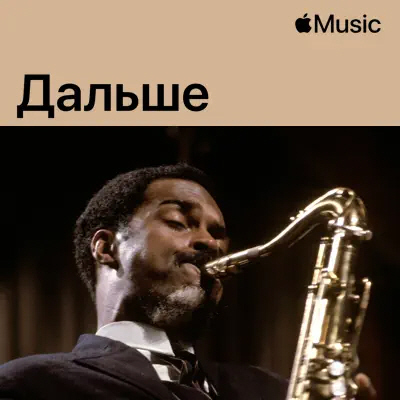 |
|||||||||||||||
|
Google translate it as “Albert Euler: next” - better get used to it. * Acoustical Swing Pierre Crépon’s blog has turned up a couple of things (one barely Ayler-related, the other not at all) worth mentioning: Out There: Noah Howard PapersOut There: Jimmy Giuffre OSTThis is the ‘Jimmy Giuffre’ film. Smiles, on youtube, with comments. |
|||||||||||||||
Pierre mentions that there are no recordings of the Jimmy Giuffre/Barre Phillips Duo, however I think I should point out (although it’s a bit daft since as soon as you look at something on amazon they seem to automatically raise the price) that there is a recording of a Jimmy Giuffre Quartet, with Barre Phillips on bass, Don Friedman on piano and Joe Chambers on drums. It’s a double CD, The Jimmy Giuffre 3 & 4: New York Concerts on the Elemental Records label and is currently cheaper on amazon.uk than the mp3 version. I heartily recommend it.*Multiple AlbertsLast month I posted a Dean Westerfield drawing of multiple Alberts. Now he’s coloured it in. |
|||||||||||||||
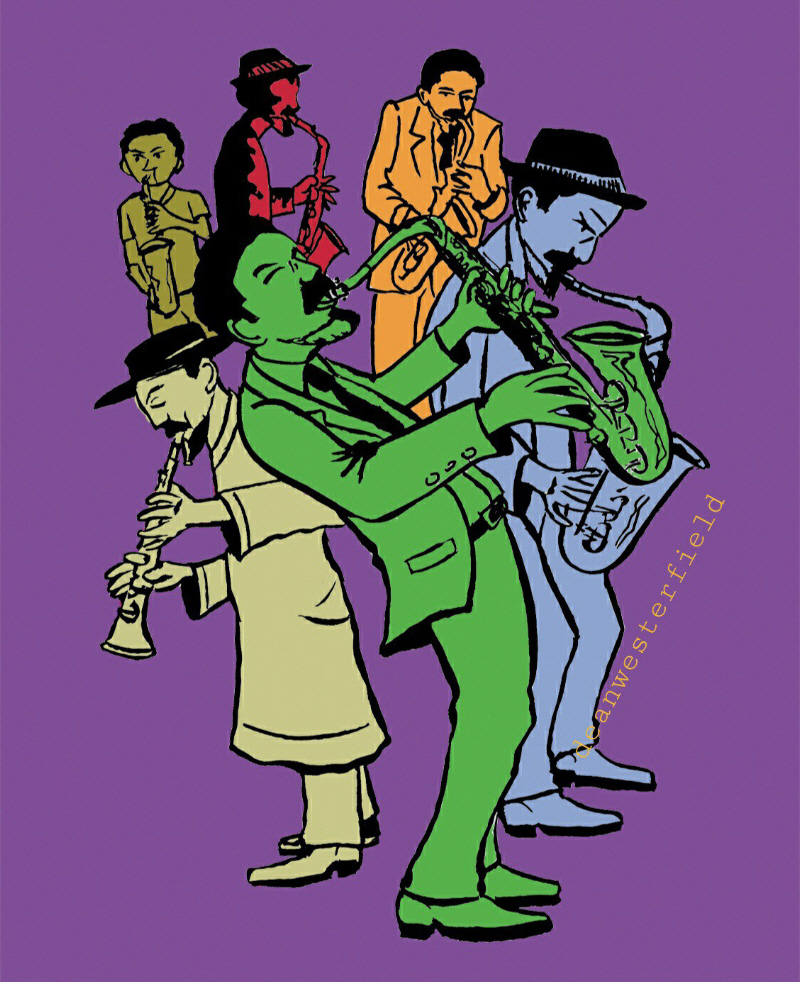 |
|||||||||||||||
|
Ronald Shannon Jackson There’s a feature on Ronald Shannon Jackson (drummer on the live La Cave and Slugs’ Saloon sets) on bandcamp: ‘Exploring the Genius of Ronald Shannon Jackson’ by George Grella, begins with: ‘Here’s the answer to a deep-cuts jazz trivia question: Drummer Ronald Shannon Jackson was one of the very, very few musicians (there may have only been one other) who played with Albert Ayler, Cecil Taylor, and Ornette Coleman.’ * Youtube roundup A mixed bag this month. Apologies if I’ve mentioned these before: Pharoah Sanders in Antibes in 1968:
|
|||||||||||||||
|
The Art Ensemble of Chicago in Montreux in 1974:
|
|||||||||||||||
|
And then there’s ‘Albert Ayler (the Caravaggio of free-jazz)’ which is a view of a country road in Italy accompanied by someone (possibly Leonardo "Pippo" Calippo) talking about Albert. ‘Abstract Rhythm in Time DigitalART With Alan Silva‘. There’s also an interview with Alan Silva (from 29th January, 2024, reposting the transcript of a WKCR interview from January 1994, so not exactly current) from Ted Panken’s blog.A discussion about a forthcoming book by Cisco Bradley, I Hear Freedom, which seems to cover some of the same topics which pop up here.And this I don’t usually do, since we know everything is available on online somewhere, but since this particular item is in a peculiar state of limbo (with only occasional trips out in the daylight courtesy of Hathut Records), and since someone has bothered to upload the full 10 hours. Here’s a link to the Holy Ghost Boxset.And here’s April’s version of ‘Ghosts’ by The Fruju Picchu Ensemble of New Zealand. |
|||||||||||||||
|
And finally ... ‘Submerging Albert (RIP mister Ayler)’
|
|||||||||||||||
|
What’s New January to March 2025 has been sent to the vaults. *** |
|||||||||||||||
|
This site went online in June 2000. All the previous ‘What’s New’ pages are available below: * If you have any information about Albert Ayler, or any questions or corrections, then please email me, Patrick Regan.
|
|||||||||||||||
|
Home Biography Discography The Music Archives Links What’s New Site Search
|
